Amaryl 3MG Tablet (30’s)
Amaryl 3MG Tablet is an oral hypoglycemic medication primarily used to manage type-2 diabetes mellitus. The active ingredient is Glimepiride, a second-generation sulfonylurea that effectively lowers blood glucose levels. The medication is usually prescribed when dietary modifications, physical exercise, and weight management prove inadequate in controlling blood glucose levels. Amaryl 3MG Tablet offers flexible dosage options and facilitates personalized treatment plans to help individuals manage their diabetes effectively.

Essential Drug Facts
| Dosage form | Oral Tablet |
|---|---|
| Chemical Class | Third-generation Sulfonylurea Derivative |
| Habit Forming | No |
| Systemic Category | Endocrine & Metabolic System |
| Action Class | Sulfonylureas (Insulin Secretogogues) |

What are the Indication / Medical Uses of Amaryl 3MG Tablet (30’s)
Amaryl 3MG Tablet is indicated for the treatment of type 2 diabetes mellitus. It is specifically utilized when modifications to lifestyle habits, such as diet and exercise, fail to control diabetes symptoms adequately. It is worth noting that Amaryl 3MG tablet is not intended for treating type-1 diabetes.

How Does Amaryl 3MG Tablet (30’s) Benefit You?
The most prominent benefit of Amaryl 3MG is its ability to regulate blood glucose levels effectively by augmenting insulin release from pancreatic beta cells. It helps to control both fasting and postprandial (post-meal) blood glucose levels. Through improved management of type 2 diabetes, Amaryl 3MG can help reduce the risk of related chronic complications.
.svg)
Amaryl 3MG Tablet (30’s) Action Mechanism
The Amaryl 3MG Tablet works by inducing insulin secretion from the pancreatic beta cells. Glimepiride, the active agent in the tablet, binds with receptors on these cells, causing an increase in insulin release. This results in a decrease in blood glucose levels, thus establishing the desired therapeutic outcome for people battling type 2 diabetes.

How should Amaryl 3MG Tablet (30’s) be used
Amaryl 3MG Tablet should be taken orally, once a day, with the first main meal. It should be swallowed whole, not chewed, crushed, or broken. The exact dosage can vary from person to person, depending on their individual glycemic response, and therefore, adjustments to dosage should only be made under the guidance of a healthcare provider.

When is the best time to take Amaryl 3MG Tablet (30’s) ?
The best time to administer Amaryl 3MG Tablet is alongside the first significant meal of the day, usually breakfast. This practice mirrors the body's natural metabolic cycle, helping maintain consistent glucose levels throughout the day.

How does it affect me if I overdose?
Overdosing on Amaryl 3MG Tablet can lead to hypoglycemia, with symptoms ranging from mild, such as hunger, nausea, and weakness, to severe, including confusion, loss of consciousness, and seizures. Immediate medical assistance is necessary in such situations.
.svg)
How does it affect me if I miss a dose?
Missing a dose of Amaryl 3MG Tablet can compromise optimal blood sugar level control. If a dose is missed, it should be consumed as soon as it is remembered, unless it's nearly time for the next scheduled dose. Doubling up the dose to make up for a missed dose is discouraged.

Drug Adverse Reactions of Amaryl 3MG Tablet (30’s)
Adverse reactions to Amaryl 3MG Tablet could include hypoglycemia, nausea, dizziness, weakness, headaches, and skin allergies like rashes. Certain medications like corticosteroids, estrogens, oral contraceptives, and thyroid medicines can increase blood glucose levels, countering the effect of Amaryl. Prolonged use can potentially lead to more serious complications such as hemolytic anemia or liver dysfunction.

Amaryl 3MG Tablet (30’s) Tablet is contraindicated in following conditions
Amaryl 3MG Tablet is contraindicated in the following conditions: Known hypersensitivity to Glimepiride or other sulfonylureas. Diabetic ketoacidosis or diabetic pre-coma. Severe renal or hepatic impairment.

Amaryl 3MG Tablet (30’s) Safety Warnings and Precautions

Alcohol consumption can amplify the hypoglycemic effect of Amaryl, so it should be avoided while taking this medication.

Amaryl 3MG should not be used in individuals with known allergies or hypersensitivity to Glimepiride or other sulfonylureas.

The safety of Amaryl 3MG during pregnancy isn't well established. Alternatives with a more established safety profile for pregnant women are usually preferred.

The safety and effectiveness of Amaryl 3MG in pediatric patients are not established. Its use in children should be done only under medical supervision.

Glimepiride may be secreted in breast milk, potentially posing risks to the nursing infant. Therefore, its use in lactating women should be approached conservatively.

Hypoglycemia induced by Amaryl 3MG may cause visual disturbances or dizziness, impairing the ability to drive safely.

Patients with impaired kidney function must use Amaryl 3MG Tablet cautiously. Dose adjustments and regular monitoring to reduce the risk of hypoglycemia may be necessary.

Lung conditions do not impact the efficacy or metabolism of the drug significantly. Nonetheless, regular blood glucose monitoring is recommended for individuals with lung diseases.

Liver impairment can affect the metabolism of Glimepiride in the body. So, frequent monitoring and potential dosage adjustments may be necessary for patients with liver conditions.

For individuals with a history of heart disease, Amaryl 3MG should be used with caution due to its potential effect on the metabolization of the drug in patients with heart issues.

Interactions between Amaryl 3MG Tablet (30’s)
Amaryl 3MG can interact with several other medications including nonsteroidal anti-inflammatory drugs (NSAIDs), other antidiabetic drugs, anticoagulants, beta-blockers, and more. These interactions can either increase the hypoglycemic effect of Amaryl or result in a loss of blood glucose control.

How to store and dispose of Amaryl 3MG Tablet (30’s)
Store Amaryl 3MG tablets at room temperature, away from extreme heat, moisture, and direct light. Medicine that is no longer needed or past its expiry date should not be flushed or poured down drains. Instead, dispose of these medications appropriately following local regulations to preserve the environment.

Here are a few quick tips for Amaryl 3MG Tablet (30’s)
Consistent adherence to Amaryl 3MG tablets, administered at a fixed time each day, can aid in achieving optimal glycemic control in patients with type-2 diabetes mellitus. A holistic approach to diabetes management, including dietary modifications and regular physical activity, can significantly enhance therapeutic outcomes. Frequent monitoring of blood glucose levels is fundamental in assessing treatment efficacy and adjusting medication dosages. Early identification of hypoglycemia and prompt management are critical in preventing adverse events in patients with diabetes.

Parameters that should be monitored Amaryl 3MG Tablet (30’s)
Regular monitoring of blood glucose levels, renal function, hepatic function, and symptoms of anemia is recommended when using Amaryl 3MG. Especially, signs and symptomes of hypoglycemia should be closely watched.

Considerations related to diet Amaryl 3MG Tablet (30’s)
Amaryl 3MG works best with a consistent meal routine. A diet plan that evenly distributes carbohydrates throughout the day can be beneficial. Incorporating a fiber-rich, low-fat and moderately caloric diet can provide an overall improvement in managing diabetes mellitus type 2.

Question and Answer (FAQ)
Q: How should Amaryl 3MG be taken?
A: Amaryl 3MG is taken orally, once daily with the first main meal of the day.
Q: Can Amaryl 3MG be used to treat type 1 diabetes?
A: No, Amaryl 3MG is not recommended for the treatment of type 1 diabetes.
Q: Will consuming Amaryl 3MG lead to weight gain?
A: Amaryl 3MG may cause weight gain as a side effect, but this can be managed through a balanced diet and physical exercise.
Q: Can I consume alcohol while taking Amaryl 3MG?
A: No, alcohol consumption while on Amaryl 3MG should be avoided as it may augment the hypoglycemic effect of the drug.
Q: What should I do if I miss a dose?
A: If you miss a dose, take it as soon as you remember, unless it's time for the next dose. Never double your dose to make up for a missed dose.
Q: Can Amaryl 3MG be used with other antidiabetic medications?
A: While it may sometimes be beneficial to use Amaryl 3MG with other antidiabetic medications, this should be only done under the supervision and direction of a healthcare provider.
Q: What happens if I overdose on Amaryl 3MG?
A: An overdose of Amaryl 3MG can lead to hypoglycemia, which can cause symptoms ranging from hunger and weakness to seizures and loss of consciousness. It is imperative to seek immediate medical attention in the event of a suspected overdose.
Q: How long does it take for Amaryl 3MG to take effect?
A: Amaryl normally begins its action within an hour, with peak effects seen between 2 to 3 hours after ingestion.
Q: Can I take Amaryl 3MG during pregnancy?
A: Amaryl is generally not recommended during pregnancy. Other medications with an established safety profile during pregnancy are preferred.
Q: Can I stop taking Amaryl 3MG abruptly?
A: No, abruptly stopping Amaryl 3MG can lead to uncontrolled blood sugar levels. All changes to medication should be made under the direction of a healthcare provider.

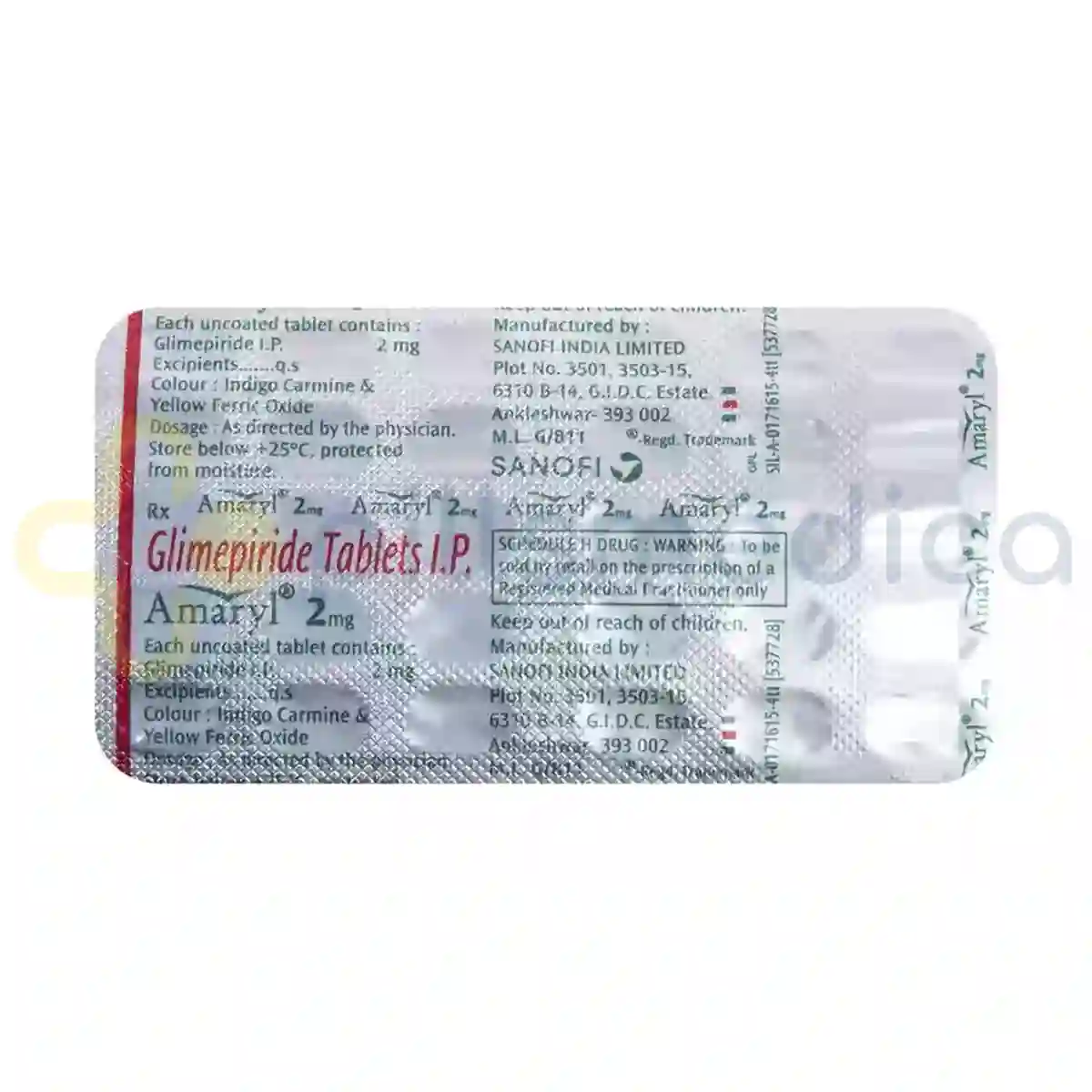
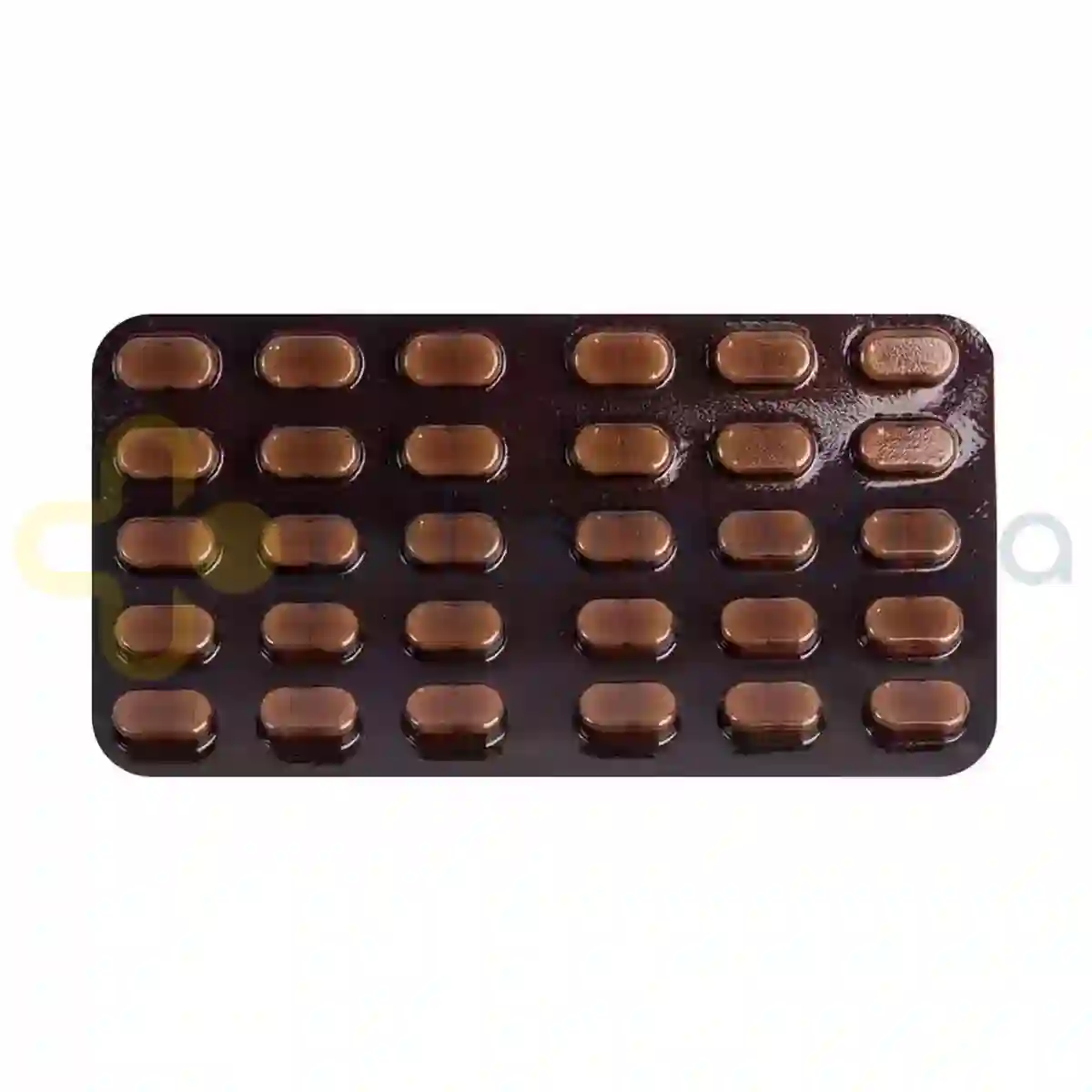






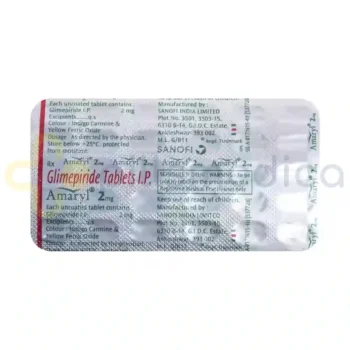


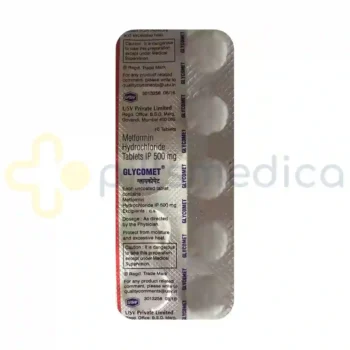
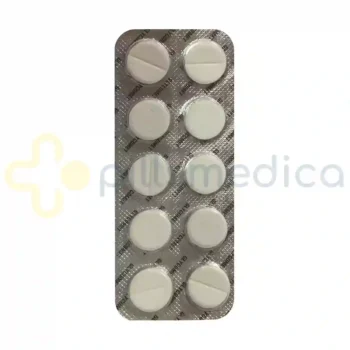





Reviews
There are no reviews yet.